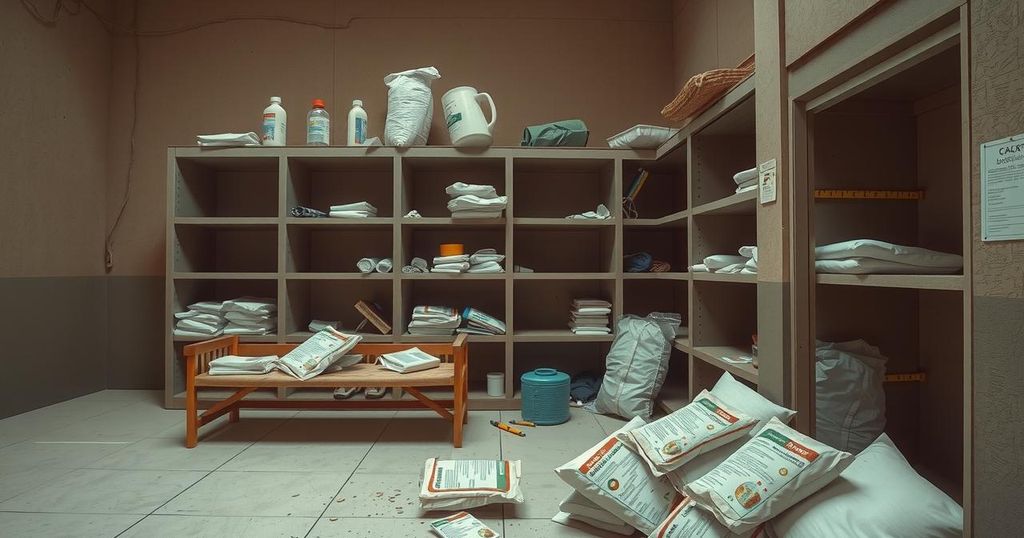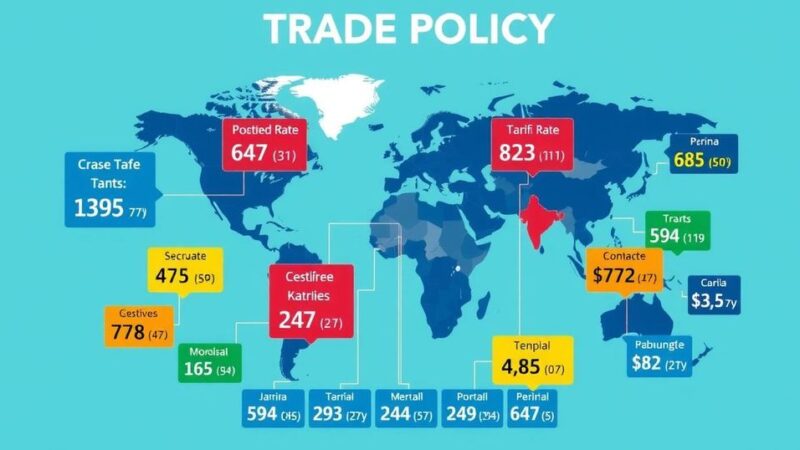The cut in U.S. aid threatens Nigeria’s tuberculosis (TB) treatment and funding, exacerbating an existing funding gap. With $404 million required for 2025, alternative funds must be secured. The Global Fund’s allocation has also been cut, affecting case-finding activities in 18 states, while Nigeria’s reliance on international support remains high. Urgent domestic investment is necessary to maintain TB services in light of declining donor assistance and the prevalence of TB in Nigeria.
The recent reduction in U.S. aid is exacerbating Nigeria’s already significant tuberculosis (TB) funding gap, raising concerns regarding the country’s capacity to maintain essential TB treatment and case-finding services. Nigeria requires $404 million for TB services in 2025; without alternative funding sources, the program could experience severe disruptions. Currently, from January to March 2023, a $5 million funding gap has arisen due to directives from the U.S. government, complicating efforts to identify and treat TB cases.
The Global Fund, an essential partner for TB programming in Nigeria, has allocated only $89 million for the year 2025, with projections decreasing to a mere $16 million by 2026. Originally, Nigeria aimed to treat 499,000 patients in 2024, but with only 418,000 identified and treated thus far, crucial resources intended for 2025 have already been utilized, leading to concerns about potential drug shortages.
Despite these challenges, Mr. Tajudeen Ibrahim, Executive Secretary for the Country Coordinating Mechanism of the Global Fund, reported that there is no immediate drug crisis. He clarified that the U.S. aid cut principally impacts TB case-finding in 18 states where U.S. support overlaps with Global Fund programs, while other areas remain effectively funded by the Global Fund.
The TB response in Nigeria significantly relies on international support, with domestic contributions markedly low, fluctuating between 6% and 8% between 2018 and 2023. In contrast, international funding has varied from 16% to 32%. As a result, funding gaps approach 70%, impeding effective TB treatment and prevention efforts.
The Federal Ministry of Health indicated that around half of Nigeria’s health facilities offer TB treatment, and only 48% of local government areas are equipped with GeneXpert diagnostic machines. TB continues to pose a substantial public health threat, with Nigeria ranking first in Africa and sixth globally among high-burden TB countries, reporting 499,000 new cases in 2023 and accounting for 20% of Africa’s TB burden.
Despite these issues, Dr. Godwin Ntadom, Director of Public Health at the Federal Ministry of Health, affirmed that Nigeria achieved a record TB notification rate in 2024, identifying over 400,000 cases from an estimated 506,000, resulting in a 79% treatment coverage. Significant improvements have also been seen in TB detection among children, with cases rising from 8,293 in 2018 to 43,000 in 2024.
Nonetheless, the presence of undiagnosed TB cases continues to contribute to community transmission, with drug-resistant TB (DR-TB) presenting additional hurdles due to low treatment enrollment. The annual observance of World Tuberculosis Day on March 24 is aimed at raising awareness and mobilizing resources to combat TB, with this year’s theme focusing on commitment and investment in TB eradication.
Both the Federal Ministry of Health and the Stop TB Partnership Nigeria have underscored the necessity for increased domestic investment in TB services to counterbalance the decline in donor support. The Acting Board Chair of Stop TB Partnership Nigeria, Dr. Queen Ogbuji-Ladipo, emphasized the urgent requirement for intensified advocacy for domestic resources, warning that the country’s TB response faces a pivotal moment due to decreasing external funding.
In conclusion, the reduction in U.S. aid poses significant threats to Nigeria’s tuberculosis treatment and prevention efforts. With funding gaps widening and a reliance on international donors, there is an urgent need for increased domestic investment to sustain TB programs. Stakeholders must work collaboratively to amplify advocacy efforts and ensure a comprehensive response to this public health challenge, capitalizing on World Tuberculosis Day to reinforce commitments to eradicating TB.
Original Source: leadership.ng






